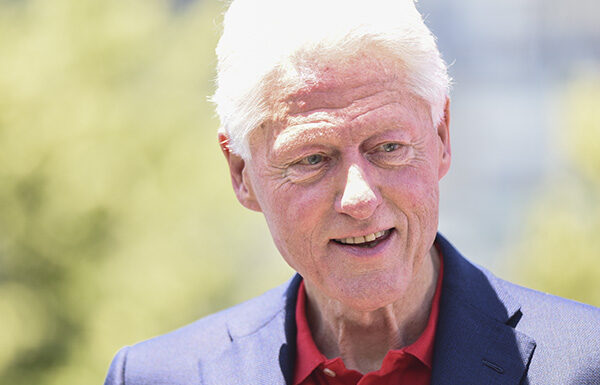Former President Bill Clinton recently dismissed the warnings from Donald Trump about the possibility of prosecuting Hillary Clinton, describing such measures as misguided and politically motivated. This came up during his recent participation in a television program.
On “The View” aired on ABC on December 11, 2024, Clinton responded to increasing conjecture about whether President Joe Biden should contemplate issuing a preemptive pardon for Hillary Clinton prior to Trump’s potential return to the White House. These comments from the former president occurred amidst escalating rhetoric from Trump and his allies about seeking legal action against his 2016 presidential election opponent.
“It’s normally a fool’s errand to spend a lot of time trying to get even,” Clinton stated during the discussion, underscoring the futility of political reprisals. He defended his wife’s actions about the email controversy that overshadowed the 2016 campaign, saying, “They got a problem with her because — first, she didn’t do anything wrong. Second, she followed the rules exactly as they were written. Third, Trump’s State Department found that Hillary sent and received exactly zero classified emails on her personal device. It was a made-up, phony story.”
The possibility of prosecuting Hillary Clinton has received renewed focus due to comments from Kash Patel, a former official in the Trump administration and current nominee for FBI Director, who has strong connections to Trump. Patel once publicly proposed that investigating Clinton would be at the top of the list if Trump were to win the presidency.
Patel is known for his advocacy for significant changes within federal agencies. He has proposed to decentralize the FBI’s headquarters in Washington, D.C., suggesting that staff be relocated to regional offices to concentrate on local investigations. Patel has previously stated his support for holding accountable those he perceives as having impeded Trump’s policy objectives during his term.
Despite the escalating rhetoric about potential prosecution, Hillary Clinton has kept a remarkably low profile on this issue, opting to direct her public statements towards broader political challenges confronting the nation.
Experts in constitutional law have expressed their unease about the unprecedented scenario of a former president threatening to prosecute a political rival years after their campaign ended. These legal academics highlight that such actions could set a risky precedent in utilizing presidential power for political retaliation.
The situation has caused waves across the political scene, with Democratic strategists noting that the threats have galvanized both Trump’s supporters and his critics. However, any effort to prosecute Hillary Clinton would encounter significant legal and constitutional hurdles, demanding careful navigation through intricate legal complexities.
According to recent polls, public opinion on this issue remains starkly polarized along party lines, demonstrating the lasting impact of the 2016 election on the national political debate. These divisions emphasize the persistent influence of previous electoral contests on current political discussions.
This controversy brings to light the ongoing tension within American politics regarding the line between legitimate law enforcement and political retaliation, and the role of presidential authority in initiating investigations into political adversaries.








